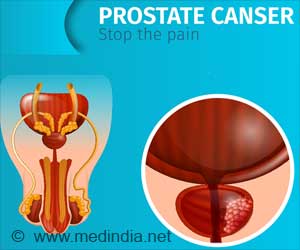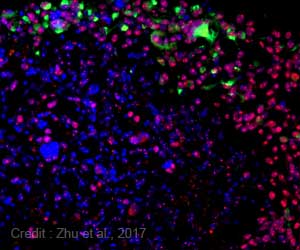
Daniel Sliva, Ph.D., associate professor at the Indiana University School of Medicine shared these findings during this year's Meeting of the Society for Integrative Oncology, in Albuquerque, NM.
This evolving body of peer-reviewed evidence continues to further substantiate the powerful anti-cancer effects of these health formulas. Significantly, original in vitro results on the breast and prostate formulas were later confirmed in vivo, demonstrating through each phase of research that these formulas work through multiple mechanisms of action on the cellular and genomic levels.
"The more we investigate these specific supplements, the more we understand their abilities to thwart cancer via different pharmacological mechanisms," said Dr. Sliva, lead author on many of these studies.
"Importantly, these formulas have had positive results against some of the most difficult cancers to treat, such as triple-negative breast cancer and hormone-refractory prostate cancer," the researcher stated.
The most recent 2012 in vivo study published in the journal Oncology Reports, showed the breast formula substantially decreased tumour growth and breast-to-lung metastasis in aggressive, triple negative breast cancer.
Advertisement
This breast formula combines eight potent herbal extracts and active nutrients: quercetin; bio-enhanced curcumin (turmeric rhizome extract) (BCM-95); a proprietary extract of Scutellaria barbata herb; Astragalus membranaceus root extract; three medicinal mushrooms species grown on a blend immune-boosting herbs; and 3,3'-diindolylmethane (DIM).
Advertisement
The latest 2012 in vivo study on this formula, published in The International Journal of Oncology showed that it suppressed androgen-independent prostate tumour growth, with no toxicity.
Results show the formula also decreased the expression of specific genes implicated in prostate cancer and metastasis, such as IGF2, NRNF2 and PLAU (uPA). It was also shown to increase the expression of CDKN1A (p21), a gene that inhibits prostate cancer. Again, these in vivo results confirm previous in vitro data published on this formula, underscoring its mechanisms of action against aggressive prostate cancer proliferation and metastasis.
"That these formulas can control cancer on the genetic and cellular level is significant. By controlling the genetic mechanisms of cancer, we inhibit its activity at the most fundamental level," said integrative medicine pioneer Isaac Eliaz, M.D., study co-author.
Perhaps the most startling results came from a 2012 synergy study pairing the two formulas with MCP, a form of citrus pectin modified to increase bioactivity systemically throughout the body.
Since 1995, MCP has been extensively researched in pre-clinical and clinical studies and is shown to inhibit cancer proliferation and metastasis; safely chelate heavy metals; boost immunity and provide support against a number of health concerns related to inflammation and fibrosis.
This synergy study, published in Integrative Cancer Therapies, showed that the combination of MCP with the breast and prostate formulas synergistically inhibited aggressive cancer cell behaviour significantly. The combinations also further suppressed the metastatic characteristic of human breast and prostate cancer cells, in significant values.
Data from this study highlights the importance of synergy in combination therapies. Results demonstrate that when MCP was used together with the breast and prostate formulas, the anti-cancer efficacy of all three supplements was increased beyond a normal additive effect.
Source-ANI












